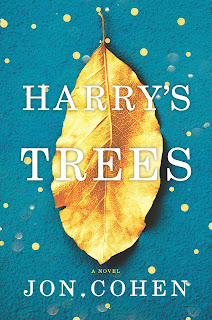Gillian Flynn's debut novel, Sharp Objects is mesmerizing. The protagonist, Camille, returns to her hometown, a small, suffocating town in MO, to report on a couple of horrific crimes.
Two young girls have been murdered and in both cases their teeth have been removed. Both girls are tomboys yet otherwise have little in common.
Camille is a Preaker, one of the leading families in the town yet she feels completely alienated from her family and their sprawling Victorian home.
Beneath a veneer of hospitality, Wind Gap is beseiged by bullies. Camille's half-sister, Amma, is one of the prettiest and meanest of the blondes.
Camille develops a relationship with one of the investigators but refuses to let her guard down. Like everyone else in the town, she holds on to her secrets.
Many are convinced that one of the deceased girls' brothers, John Keene, is the killer.
Sharp Objects has been turned into an HBO miniseries with Amy Adams.












